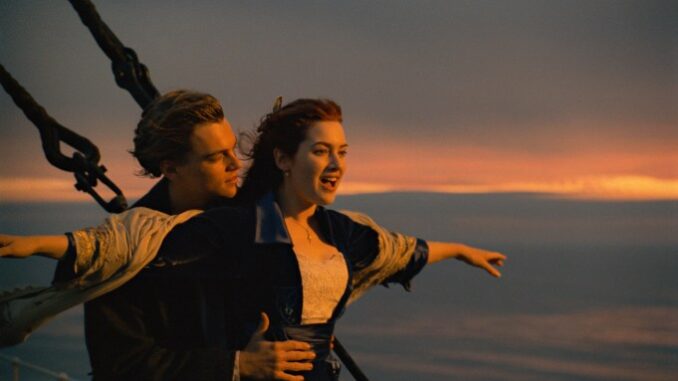
The Door and the Debate: Kate Winslet on Jack's Fate in Titanic
For nearly three decades, the cinematic behemoth that is Titanic has captivated audiences with its sweeping romance, harrowing disaster, and, perhaps most persistently, a single, infuriating question: Could Jack have survived? The image of Rose, perched precariously on a floating door while Jack slowly succumbs to the icy grip of the Atlantic, has become a cultural touchstone, fodder for countless memes, parodies, and, most pointedly, debates amongst fans and experts alike. And at the heart of this unending discourse lies Kate Winslet, the actress who brought Rose DeWitt Bukater to life, eternally tethered to the film and, consequently, the thorny issue of Jack's watery demise. Her thoughts, often solicited and sometimes reluctantly offered, provide a fascinating lens through which to examine the complexities of the film’s narrative choices and the enduring power of tragic storytelling.
Winslet’s perspective on “Door-Gate,” as it’s affectionately known, is rarely straightforward. Initially, she seemed to subscribe to the prevailing fan theory: yes, Jack could have, and should have, squeezed onto that makeshift raft. In interviews given shortly after the film’s release, she often expressed frustration with the script’s insistence on Jack's sacrifice, suggesting that a bit more creative problem-solving could have averted the tragedy. These early comments fueled the debate, giving credence to the notion that Jack's death was a narrative flaw, a needless contrivance designed to elicit emotional response.
However, as time wore on and the question continued to dog her, Winslet’s stance evolved. Perhaps weary of the constant interrogation, or perhaps reflecting more deeply on the film’s themes, she began to acknowledge the dramatic necessity of Jack's sacrifice. While she may have initially believed there was physical space for two on the door, she started to emphasize the symbolic weight of Jack's death. She argued that his demise, however heartbreaking, underscored the film’s central message of selfless love and sacrifice. Jack, the impoverished artist from the wrong side of the tracks, chose to give Rose, the privileged but stifled debutante, a chance at a new life, a life liberated from the constraints of her societal expectations. His death, therefore, wasn't just a plot point, but a testament to the transformative power of their brief but profound connection.
Furthermore, Winslet subtly shifted the focus from the physical feasibility of sharing the door to the psychological impact of the situation. Imagine, she seemed to suggest, the sheer panic, the bone-chilling cold, the utter chaos of the aftermath. Could two individuals, already weakened and traumatized, realistically manage to share a flimsy piece of debris without one inevitably succumbing to exhaustion, hypothermia, or the crushing weight of despair? Perhaps, she implied, the door was big enough, but the human spirit, under such unimaginable pressure, might not have been.
Winslet’s evolving perspective highlights the multifaceted nature of cinematic interpretation. While scientific analysis and armchair engineering can offer rational explanations for Jack's fate, they often miss the deeper emotional and thematic resonances embedded within the narrative. Titanic isn’t simply a historical recreation; it’s a modern-day myth, a story about love, loss, and the enduring human spirit in the face of unimaginable adversity. Jack's death, while undeniably tragic, serves as a powerful reminder of the sacrifices we make for love and the lasting impact one life can have on another.
Ultimately, Kate Winslet’s changing views on the “Door-Gate” debate reflect the enduring power of Titanic itself. The film continues to spark conversations, provoke emotions, and challenge our understanding of love, sacrifice, and the complexities of human relationships. While the question of Jack’s survival may never be definitively answered, the enduring fascination with his fate serves as a testament to the film's lasting legacy and the power of storytelling to capture our imaginations and haunt our dreams for generations to come. And perhaps, in the end, it’s not about whether Jack could have survived, but about the lasting impact his selfless act had on Rose, and, by extension, on us, the audience, who continue to grapple with the enduring question of what it truly means to love, and to lose, completely.
